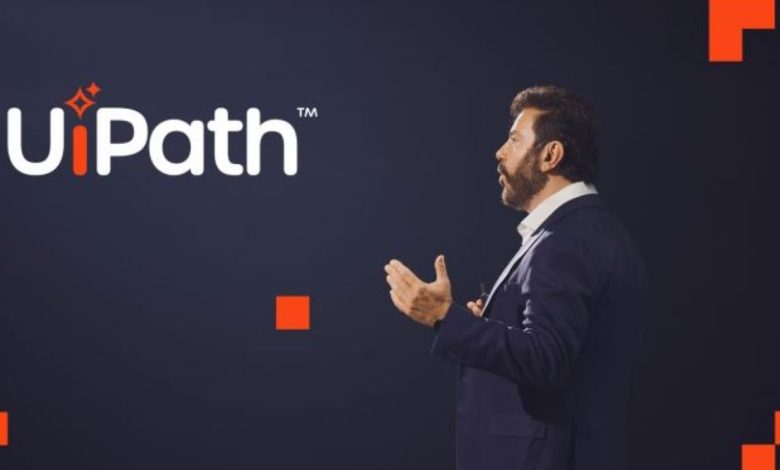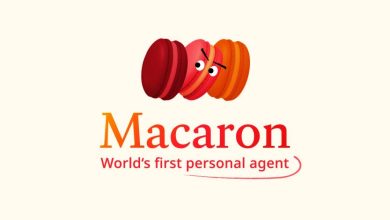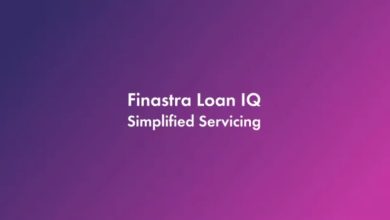UiPath Showcases Next-Generation Enterprise-Grade Platform at Singapore Agentic Automation Summit
Breaking down the barriers to enterprise AI adoption by enhancing security and compliance, improving accuracy and reliability, overcoming stalled pilot projects, and avoiding vendor lock-in

UiPath, a global leader in agentic automation, has spotlighted its next-generation UiPath Platform™ for agentic automation, a groundbreaking platform designed to unify Artificial Intelligence (AI) agents, robots, and people on a single, intelligent system, at the UiPath Agentic Automation Summit held in Singapore. The platform enables the creation of cohesive workflows where people, robots, and AI agents work synergistically to optimise processes and drive enterprise efficiency.
Overcoming Barriers to Enterprise AI to Support Singapore’s AI Vision
Business leaders face challenges scaling AI across the enterprise due to security and compliance risks, lack of reliability, stalled pilot programmes, and fear of vendor lock-in.
In Southeast Asia, the evolving landscape of AI governance presents challenges for organisations striving to manage ethical concerns, biases, and regulatory compliance. While countries like Singapore have initiated frameworks to promote responsible AI use, the region’s overall approach remains fragmented and predominantly voluntary, making it difficult for organisations to navigate ethical considerations and adhere to consistent regulations.
The new UiPath Platform directly addresses these challenges, combining decades of leadership in automation with a new, agentic architecture that is purpose-built for business-critical workflows.
IDC’s 2025 Agentic AI research shows that 42% of organisations in Southeast Asia already use AI agents, with close to 44% planning to implement them within the next year. Singapore is particularly at the forefront of agentic AI adoption, given the government’s proactive stance in fostering AI development across industries through National AI Strategy 2.0.
Approximately 80% of organisations in Southeast Asia are prepared to pay up to 50% more for a suitable AI agent platform, with the expectation of generating up to three times the ROI from their agentic AI initiatives. This signals growing recognition of agentic automation’s value and a shift towards prioritising its adoption.
“We’re at a pivotal moment in AI evolution—moving from co-pilots to autonomous agents that can be deployed as part of broader workflows. As trust in AI deepens and governance frameworks mature, human oversight will become increasingly critical for these agents to operate independently at scale. This marks a fundamental shift in how businesses drive efficiency, innovation, and decision-making through AI,” said Deepika Giri, Associate Vice President, IDC Asia/Pacific.
UiPath Showcases Innovative Offerings at Singapore Summit
At the Singapore Summit, UiPath showcased the new capabilities of the UiPath Platform for Agentic Automation, which include:
- UiPath Maestro™—Seamless Orchestration for AI Agents, Robots, and People: UiPath Maestro is the new orchestration layer at the heart of the platform. It automates, models, and optimises complex business processes end to end with built-in process intelligence and KPI monitoring to enable continuous optimisation. Maestro provides the centralised oversight needed to safely scale AI-powered agents across systems and teams.
- Agentic Workflows You Can Trust: Through a controlled agency model, UiPath ensures AI agents operate within clearly defined guardrails, ensuring security, predictability, and performance. The platform features robust governance, real-time vulnerability assessments, and stringent data access controls to protect enterprise environments.
- Power for All Developers—From Low Code to Full Code: The platform empowers business technologists and seasoned developers alike with intuitive low-code tools and advanced coding environments. Developers can rapidly prototype agents in UiPath Agent Builder within UiPath Studio, while having the opportunity to customise when needed. This means both technically oriented business professionals and experienced programmers can easily create sophisticated, scalable automations that can adapt to complex business requirements and evolving enterprise needs.
- An Open, Multi-Agent Framework for the Enterprise: UiPath integrates with third-party agent frameworks including LangChain, Anthropic, and Microsoft, supporting sophisticated multi-agent systems that work across complex, cross-functional workflows. We partnered with Google Cloud on its new, open protocol called Agent2Agent (A2A), which will allow AI agents to communicate with each other, securely exchange information, and coordinate actions on top of various enterprise platforms or applications. This open approach breaks down silos and future-proofs enterprise automation strategies.
- Intelligent Document Processing at Scale: The new UiPath IXP (Intelligent Xtraction & Processing) solution introduces multi-modal, AI-based classification and extraction for unstructured data. Built for high-complexity use cases like claims adjudication, loan origination, and electronic batch records, IXP brings enterprise-grade scale to document processing.
- Innovation in Agentic UI Automation and Performance: With this latest release, UiPath has also introduced UI Agent for computer use, now in private preview—a natural language-driven agent that understands user intent, plans multi-step tasks, and executes actions across interfaces autonomously.
Since the launch of the private preview in January 2025, the UiPath Platform for agentic automation has already seen thousands of semi-autonomous and autonomous agents created, with over 75,000 agent runs; 450+ partners that have started or completed agentic automation courses; and hundreds of customer use cases deployed.
“With the launch of our next-generation UiPath Platform, we’re delivering a powerful foundation for agentic automation—one that brings together AI agents, robots, and people to help enterprises operate with greater productivity and scale. The result is faster decision-making, smarter operations, and more time for employees to focus on high-impact, meaningful work. We’re excited to help businesses across all industries and sizes begin their journey with agentic automation, unlocking new levels of productivity, innovation, and growth,” said Deb Deep Sengupta, Area Vice President for South Asia at UiPath.
“The next frontier in digital transformation lies in technologies that don’t just automate tasks, but act independently, adapt in real time, and scale intelligently,” said Satyen Makhija, Partner at Deloitte India. “Our partnership with UiPath, a global leader in agentic automation, is designed to help our customers build highly scalable automation architectures. AI agents enable them to do just that through a new level of autonomy – operating across functions from front-end design to back-end operations and driving measurable impact across the business. This isn’t just about efficiency; it’s about building a more flexible, responsive, and intelligent operating model.”
The UiPath Agentic Automation Summit in Singapore is part of a series of roadshows taking place in 15 cities across APJ in 2025, where UiPath customers, partners, and individuals come together to discuss and explore the latest advancements in agentic AI and automation for the enterprise and public sector.




